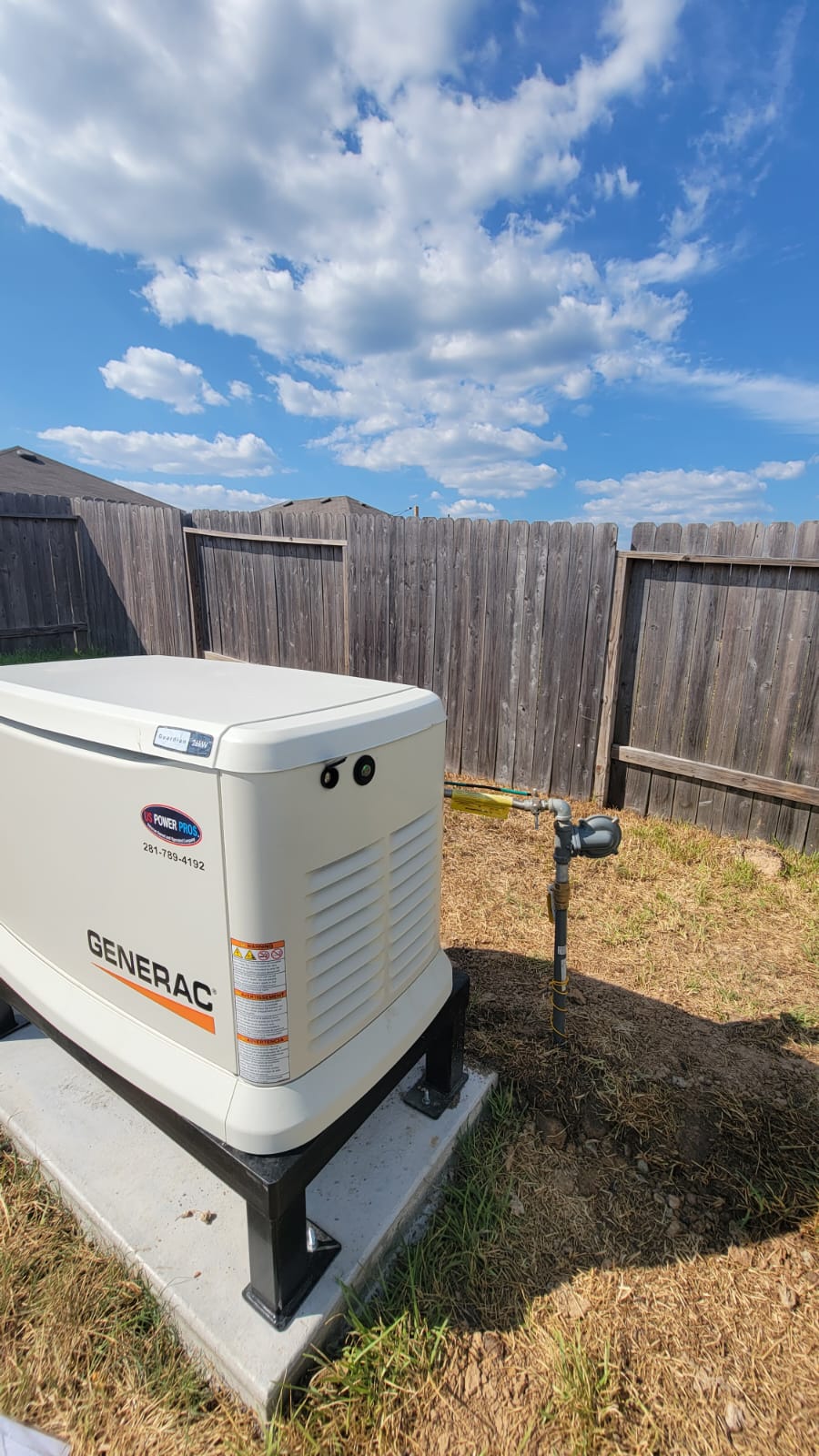
- January 8, 2024
- By Tad
- Commercial, Residential
Is Your Generator Installed to Code?
Ensuring that your generator is installed to code is crucial for safety and compliance. In this blog post, we will discuss the importance of code compliance and provide some key points to consider when installing a generator.
Why Code Compliance Matters
When it comes to installing a generator, code compliance is of utmost importance. It ensures the safety of your generator installation and helps you avoid potential fines and penalties. Moreover, complying with codes and regulations ensures that your generator will function properly, providing reliable backup power when needed.
Ensuring Safety
The primary reason code compliance matters for your generator installation is safety. Code compliance outlines specific requirements and guidelines that must be followed during the installation process to ensure that the generator operates safely and effectively. These codes consider factors such as proper ventilation, appropriate fuel storage, and electrical connections.
By ensuring code compliance, you reduce the risk of accidents, such as electrical hazards, fires, or fuel leaks, which can cause harm to individuals and property damage. These codes are put in place by regulatory bodies to protect both you and those around you.
Avoiding Fines and Penalties
Non-compliance with generator installation codes can result in fines and penalties. Regulatory authorities enforce these codes to regulate safety standards and maintain order in the industry. Failure to adhere to these codes can lead to costly consequences that impact your finances.
Receiving fines and penalties not only affects your budget but also reflects poorly on your reputation. It may deter potential customers or business partners, as it indicates a lack of responsibility and attention to safety. Therefore, it is crucial to ensure code compliance to avoid legal or financial complications.
Proper Generator Functionality
Complying with codes and regulations helps to ensure that your generator functions as intended. These codes provide guidelines on factors such as sizing, wiring, and proper maintenance, which are essential for optimal generator performance. Failure to adhere to these guidelines may result in inefficient or unreliable generator operation, defeating the purpose of having a backup power source.
Proper generator functionality involves various aspects, including correctly sizing the generator for your specific power needs, professional installation to prevent any electrical or mechanical issues, and regular maintenance to keep the generator in good working condition. Following the codes ensures that all these aspects are addressed adequately, maximizing the efficiency and reliability of your generator.
Peace of Mind
Lastly, code compliance provides peace of mind. Knowing that your generator installation meets all the necessary codes and regulations, you can rest assured that you have taken all the steps needed to ensure the safety of your property, occupants, and neighboring properties.
Having a code-compliant generator also gives you confidence in the reliability of your backup power source. During unexpected power outages or emergencies, you can trust that your generator will function as intended, providing you with the peace of mind that you will not be left without electricity when you need it most.
Code compliance should never be taken lightly when it comes to generator installation. It is not just a matter of following rules and regulations, but rather a crucial step in ensuring safety, avoiding fines and penalties, and maximizing the functionality of your generator. By complying with codes, you protect yourself and your property and contribute to the overall safety and well-being of your community. Always consult professionals and experts to ensure your generator installation meets all the necessary code requirements.
Key Considerations for Generator Installation
When it comes to installing a generator, there are some key considerations that you need to keep in mind. Whether you’re installing a backup generator for your home or a commercial generator for your business, following these guidelines will ensure a safe and efficient installation process.
Hire a licensed and experienced electrician for the installation
One of the most important considerations when installing a generator is hiring a licensed and experienced electrician. Your electrician should have the necessary expertise to handle all aspects of generator installation, including electrical connections and wiring. They will also be able to guide you through the entire installation process, from selecting the right generator for your needs to ensuring that it is installed safely and efficiently.
By hiring a licensed and experienced electrician, you can have peace of mind knowing that the installation will be done correctly and up to code. They will be able to assess your electrical needs, determine the right generator size for your requirements, and ensure that all connections and wiring are done safely and efficiently. Additionally, they will be able to handle any potential issues or challenges that may arise during the installation process.
Ensure proper ventilation and clearance for the generator
Proper ventilation and clearance are essential for the safe operation of a generator. Generators produce exhaust fumes that must be adequately ventilated to prevent the buildup of harmful gases such as carbon monoxide. It is essential to place the generator in a well-ventilated area, away from windows, doors, and other openings that could allow the exhaust fumes to enter indoor spaces.
In addition to ventilation, it is also important to provide adequate clearance around the generator. This is necessary for maintenance and repair activities and ensuring proper airflow and cooling. The clearance requirements will vary depending on the size and type of generator, so it is important to consult the manufacturer’s guidelines or your electrician for specific clearance requirements.
Follow all local and national electrical codes
Regarding electrical installations, compliance with local and national electrical codes is non-negotiable. These codes are in place to ensure the installation’s safety and prevent electrical hazards. Your electrician will be well-versed in these codes and ensure the generator installation meets all the requirements.
Some key electrical codes that must be followed during generator installation include proper grounding, correct wiring, connection methods, and adherence to load calculations. Your electrician will have the knowledge and expertise to navigate these codes and ensure that the generator installation is done in compliance with all applicable regulations.
It is also worth noting that local authorities often require obtaining the necessary permits and inspections for the generator installation. Your electrician will be able to assist you with this process and ensure that all the necessary permits are obtained, and assessments are scheduled.
When it comes to generator installation, hiring a licensed and experienced electrician, ensuring proper ventilation and clearance, and following all local and national electrical codes are key considerations. By keeping these considerations in mind and working closely with your electrician, you can ensure a safe and efficient installation that meets all regulatory requirements.
Common Code Violations to Avoid
To ensure the safety and functionality of electrical systems, it is crucial to adhere to the appropriate codes and regulations. Failure to do so can lead to various issues, such as electrical shocks, fires, and other hazards. In this blog post, we will discuss some common code violations to avoid regarding generator installation.
Improper Grounding of the Generator
One of the most critical code violations to avoid is improper generator grounding. Grounding is essential to redirect unwanted electrical current and prevent electrical shock. Inadequate grounding can lead to serious safety risks and damage to the generator.
Generator grounding should comply with the National Electrical Code (NEC) requirements. The generator should be connected to an appropriate grounding electrode system, such as a grounding rod. It is crucial to ensure the grounding connection is secure and has low impedance to dissipate electrical faults effectively.
Additionally, it is essential to inspect the grounding system to maintain its integrity regularly. Any signs of corrosion or damage should be addressed promptly to prevent further complications.
Insufficient Clearance around the Generator
Proper clearance around the generator is crucial to ensure adequate ventilation and accessibility for maintenance and repairs. Insufficient clearance can lead to overheating, which can result in generator failure.
The NEC provides specific requirements for the minimum clearance around generators. The distance varies depending on factors such as generator size and fuel type. It is important to consult the NEC guidelines and local regulations to determine the appropriate clearance for a generator installation.
When installing a generator, it is essential to consider the airflow requirements specified by the manufacturer. Sufficient space from the generator enclosure should be provided to nearby walls, structures, and combustible materials to facilitate proper ventilation and prevent potential fire hazards.
Incorrect Wiring Connections
Incorrect wiring connections are another common code violation that can lead to problems with generator performance and safety. Understanding the appropriate wiring practices and following them during installation is essential.
When connecting the generator to the electrical system, it is important to ensure proper sizing and connections of conductors, overcurrent protection devices, grounding conductors, and transfer switches. All wiring connections should be secure, free from damage, and compliant with the applicable codes and standards.
In addition, it is crucial to label all wiring connections properly to facilitate future maintenance and troubleshooting. Clear labeling helps electricians easily identify circuits and connections related to the generator.
By avoiding common code violations such as improper grounding, insufficient clearance, and incorrect wiring connections, you can ensure your generator’s safe and effective operation. Adhering to the appropriate codes and regulations is crucial to minimize the risk of electrical hazards and maintain the longevity of your generator system.
US Power Pros has your back
Ensuring that your generator is installed to code is not just a matter of following regulations; it is a crucial step in ensuring the safety and compliance of your entire electrical system. Let US Power Pros install your generator so you can know that a certified professional has adhered to all relevant codes and regulations.
You can also email us at sales@uspowerpros.com or give us a call at (281) 789-4192.

